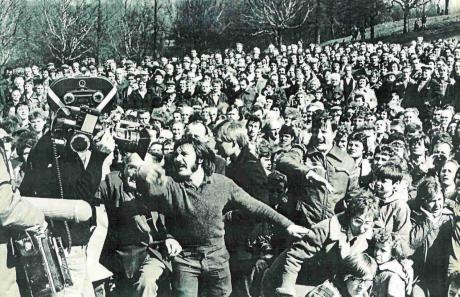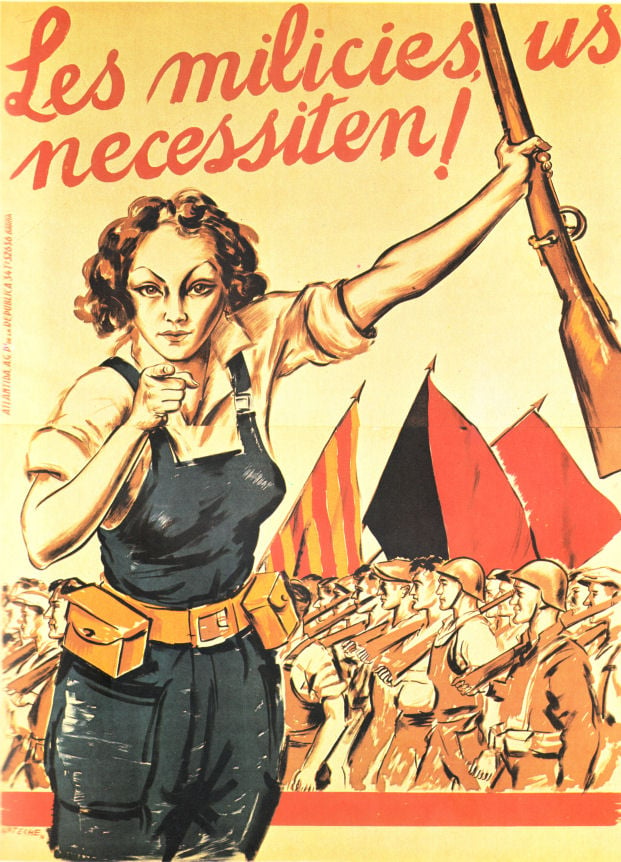“Winter of Discontent” Begins (1978)
Fri Sep 22, 1978

Image: A crowd of strikers in the Winter of Discontent
On this day in 1978, one of the first strikes of the British “Winter of Discontent” began when 15,000 Ford workers, mostly from the Transport and General Workers Union (TGWU), began an unofficial strike.
The Winter of Discontent took place during 1978-79 in the United Kingdom, characterized by widespread strikes from both private and public sector trade unions. Some of these industrial disputes caused great public inconvenience, exacerbated by the coldest winter in 16 years in which severe storms isolated many remote areas of the country.
On September 22nd, 1978, one of the first strikes of the “Winter of Discontent” began when 15,000 Ford workers, mostly from the Transport and General Workers Union (TGWU), began an unofficial strike.
The number of participants later grew to 57,000. As the months progressed, workers from multiple industries went on strike, including lorry drivers, garbage collectors, and gravediggers. It was the largest UK labor stoppage since 1926.
The Winter was a disaster for the incumbent Labour Party. The magazine Socialist Worker quoted one council worker as saying “We had to strike because Labour betrayed us”.
The Labour Party was swept out of power in the 1979 election, leading to the premiership of Margaret Thatcher.
- Date: 1978-09-22
- Learn More: socialistworker.co.uk, en.wikipedia.org, libcom.org.
- Tags: #Labor.
- Source: www.apeoplescalendar.org
The Winter was a disaster for the incumbent Labour Party. The magazine Socialist Worker quoted one council worker as saying “We had to strike because Labour betrayed us”. The Labour Party was swept out of power in the 1979 election, leading to the premiership of Margaret Thatcher.
Nothing new under the sun then. Conservatives fuck over the working class, a neoliberal thinks they can “fix things from within” and gets elected on that promise (as long as they don’t threaten the establishment, that is), only to be confronted with (or knowingly rely on, like I suspect Starmer did) the fact that there is no reforming capitalism, and that they’re just there as a placeholder and a scapegoat for Tories to blame all their failures on and get elected right back in to power in the next round, continuing the perpetual and intentional shift of the Overton window to the right.
On a related note, the slightly earlier Ford sewing machinists strike of 1968 which the movie Made in Dagenham was based on, also comes to mind, as do the slightly later 1984 strikes. The documentary Miners’ Strike 1984: The Battle for Britain is worth watching.


